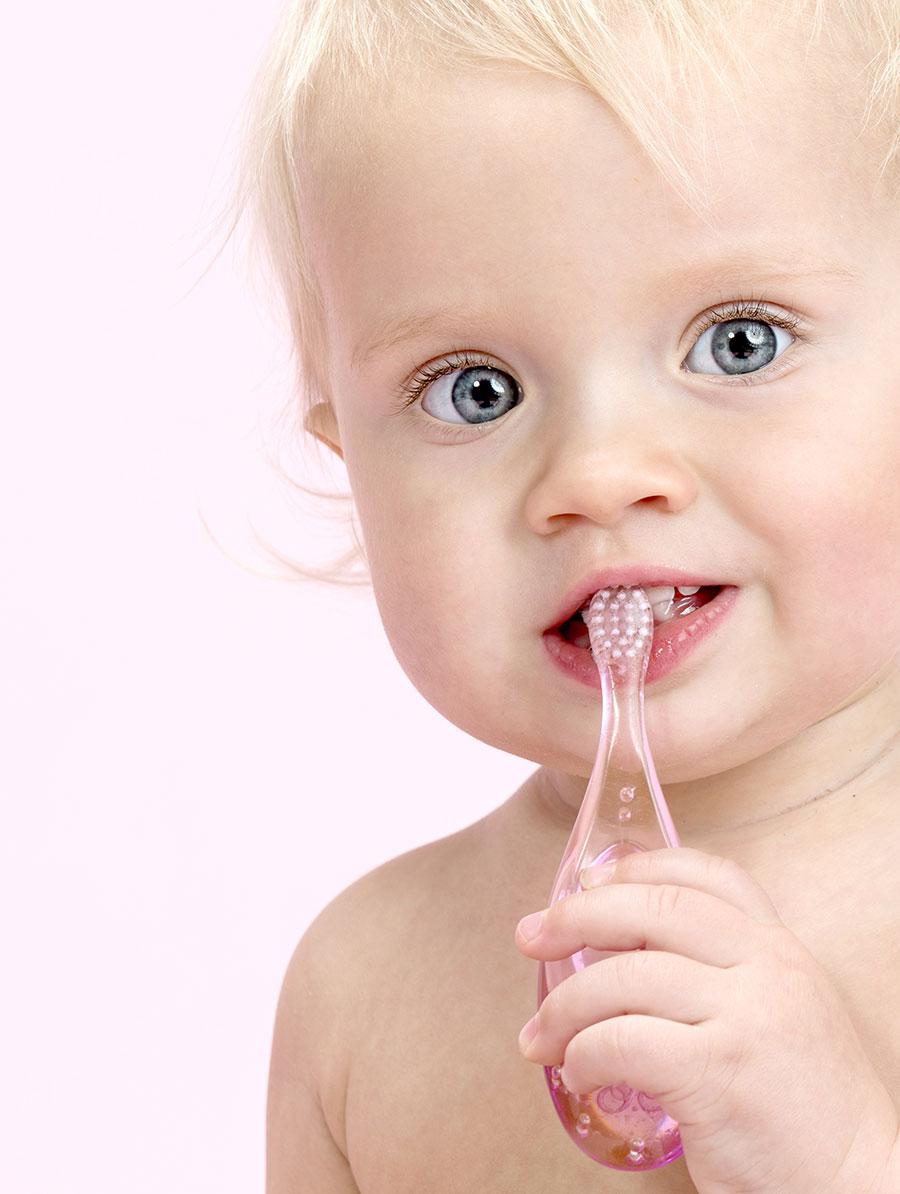Preventing Baby Bottle Tooth Decay
 While primary (or baby) teeth will eventually fall out and be replaced with permanent teeth, it is still important to keep them in good health. Our pediatric dentist, Shelley Kaur DDS offers treatments for baby bottle tooth decay and other childhood dental problems to ensure that your child’s teeth and smile remain healthy.
While primary (or baby) teeth will eventually fall out and be replaced with permanent teeth, it is still important to keep them in good health. Our pediatric dentist, Shelley Kaur DDS offers treatments for baby bottle tooth decay and other childhood dental problems to ensure that your child’s teeth and smile remain healthy.
If your infant or toddler succumbs to baby bottle tooth decay, pain, infection, and premature tooth loss may result. This can lead to speech problems, difficulty eating, and crooked adult teeth. Learn what puts young children at risk for cavities and how to protect your baby or toddler from tooth decay.
Causes of Baby Bottle Tooth Decay?
Cavities in infants and toddlers are often caused when sugary liquids including milk, formula, and fruit juice stick to your baby’s teeth for an extended time. Bacteria in the mouth thrive on sugar and turn it into acid that eats away at the teeth. Baby bottle tooth decay can affect the whole mouth, but the upper front teeth are the most susceptible.
How to Prevent Tooth Decay in Infants & Toddlers
As a parent, it’s your responsibility to help your child maintain good oral health. Start with these specific tips to prevent baby bottle tooth decay:
- Wipe your child’s gums with a clean, damp cloth after meals.
- Brush baby teeth gently with a child-size toothbrush and a smear (the size of a grain of rice) of fluoride toothpaste until the age of 3.
- Brush your child’s teeth with a pea-sized amount of fluoride toothpaste from the ages of 3 to 6.
- Supervise brushing until your child can spit and not swallow toothpaste.
- Place only formula, milk, breast milk, or water in bottles. Avoid juice, soft drinks, and sugar water.
- Infants and toddlers should finish their bedtime and nap time bottles before lying down. Your child is at higher risk of getting cavities if he’s put to bed with a bottle or if a bottle is used to calm him when he’s fussy.
- If your child must go to bed with a bottle or cup, fill it with water. Water with fluoride is best.
- If your child wants a drink between meals, give him water. Wait until meals to give your child juice or another sugary beverage. During meals, the act of chewing food gets saliva flowing, which helps wash away leftover sugar from your child’s teeth.
- Avoid dipping pacifiers in sugar or honey.
- Don’t give juice to infants under the age of 1.
It’s never too late to break bad habits! Don’t feel guilty if you’ve been putting juice in your baby’s bottle or dipping his pacifier in sugar – simply choose to stop these practices, now that you know how harmful they are.
When your child’s first tooth appears, call Shelley Kaur DDS about scheduling the first dental visit. Treat the first dental visit as you would a well-baby checkup with the child’s physician. Remember: starting early is the key to a lifetime of good dental health.


